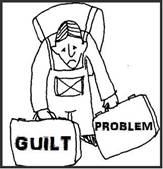 As a parent, it is important to be aware of which parenting style you use. The ideal is an “I’m OK – You’re OK” style. What’s your parenting style?
As a parent, it is important to be aware of which parenting style you use. The ideal is an “I’m OK – You’re OK” style. What’s your parenting style?
Once you know how you parent, you can slowly shift towards a more positive mindset. According to psychiatrist Thomas Harris, there are four types of parenting style:
- I’m OK – You’re OK
- I’m OK – You’re not OK
- I’m not OK – You’re OK
- I’m not OK – You’re not OK
The I’m OK – You’re OK mindset is important in all kinds of relationships: parent-child relationships, love relationships, family relationships and even work relationship.
I’m OK – You’re OK parents
Parents who adopt this attitude are very easy going. They have very minimal problems with their kids and their basic assumption is that everyone, including them, is a good-hearted person.

These parents are usually honest and open, and think others are too. They have a strong sense of self worth and are very trusting of others. Such parents model good relationships and have superior social skills.
I’m OK – You’re not OK parents
Parents with this mindset think of themselves as above their kids. They have a slight “superiority complex” and often control their kids by exerting their power. They think they are better than others and consider their kids inferior. They show disappointment in their kids when they are not meeting expectations. They are often critical of others’ faults, while being blind to their own shortcomings.

The gap between what they appear to think of themselves (highly) and what they say they think of others (poorly) is large. They may become isolated due to their distrust of others who they believe are inferior to them. Kids tend to establish separate lives from them as soon as they can.
I’m not OK – You’re OK parents
Parents in this state of mind feel bad about themselves. They blame themselves for everything that goes wrong and feel victimized. They lack confidence and have many doubts about themselves, about life and the direction they need to take in life. They do not trust themselves and often think the “grass is greener” on the neighbors’ side.
They seem to be constantly searching for proof of their incompetence, weakness or worthlessness. When they compare themselves to others, it is usually to highlight others’ advantages and their inferiority. They are not proud parents. They do not promote their kids and think they have bad luck with kids.
To their kids they seem to lack confidence, to be non supportive, weak and lack in motivation. For a kid to grow up with such a parenting style can be very hard. Their parents cannot give them confidence so they must find it elsewhere.
I’m not OK – You’re not OK parents

Join me next week for some tips on how to shift to an I’m OK – You’re OK parenting style.
Happy parenting,
Ronit
This post is part of the series I'm OK - You're OK Parenting:
- I’m OK, You’re OK Parenting: OK and EQ
- I’m OK, You’re OK Parenting: Shame
- I’m OK, You’re OK Parenting: Guilt
- I’m OK, You’re OK Parenting: Parenting Styles
- I’m OK, You’re OK Parenting: Being an “I’m OK” Parent
- I’m OK, You’re OK Parenting: Being a “You’re OK” Parent
- I’m OK, You’re OK Parenting: “I’m OK” Beliefs











